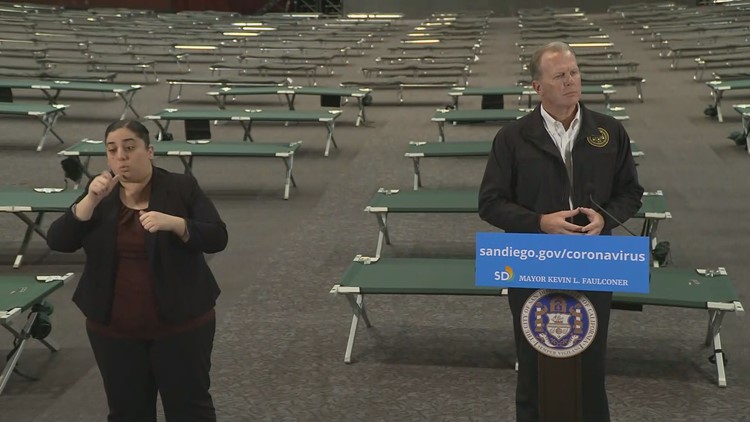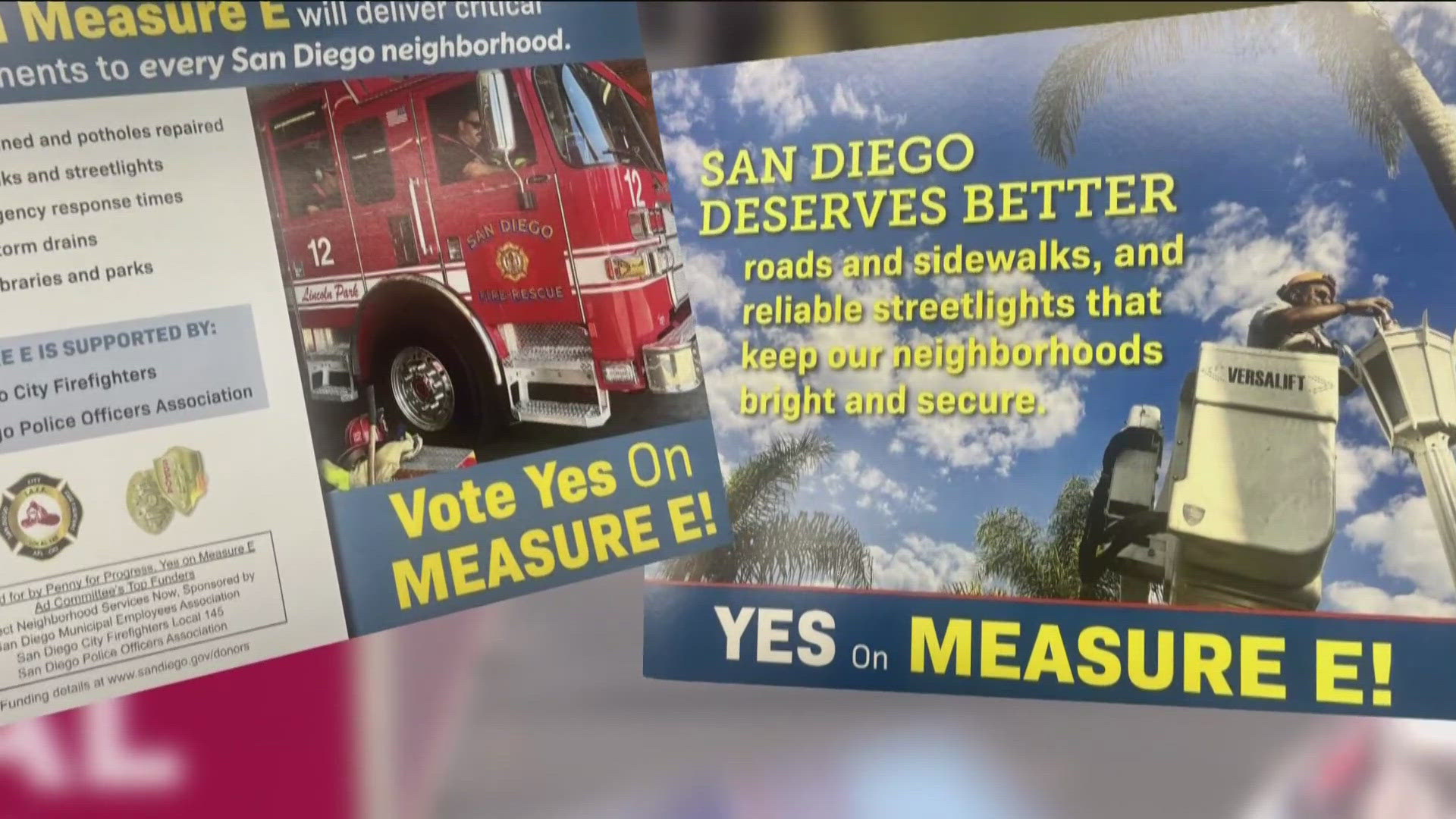SAN DIEGO — San Diego Mayor Kevin Faulconer, San Diego Police Department Chief David Nisleit, Fire-Rescue Chief Colin Stowell and Lifeguard Division Chief James Gartland will held a news conference Monday late afternoon:
The group discussed the signing of a new executive order that declares San Diego city employees disaster workers.
"The declaration directs other actions that include streamlining medical supply delivery, extending building permits and waiving fees. The Mayor will also provide updates related to cross border collaboration between San Diego and Mexico, as well as his direction last Monday to close access to parks, beaches and trails," said Gustavo Portela, the mayor's press secretary.
"This action puts the city of San Diego's workforce, which is more than 11,000 strong, able to carry out work under the California Emergency Services Act," Faulconer said at a news conference at City Hall. "With this designation, any disaster service worker, regardless of their formal classification or assignment as a city employee, can assist the efforts to protect life and property, support the city's emergency operations center, and mitigate the effects of the emergency."
Faulconer said some city employees have already been deployed to enforce new COVID-19 related regulations at beaches, parks and trails, such as code enforcement officers helping parks and recreation staff educate the public regarding the closures.
The order will also allow city library employees to assist with supply distribution and food delivery at local hospitals.
Faulconer said it was a "very proactive step that will help give the city of San Diego the flexibility and the capability to handle whatever may come our way especially as we prepare for a surge of cases and activity in the future."
BACKGROUND:
According to the CDC, coronavirus (COVID-19) is a family of viruses that is spreadable from person to person. Coronavirus is believed to have been first detected in a seafood market in Wuhan, China in December 2019. If someone is sick with coronavirus, the symptoms they may show include mild to severe respiratory illness, cough, and difficulty breathing.
Currently, there is no vaccine, however, the CDC suggests the following precautions, along with any other respiratory illness:
Avoid close contact with people who are sick.
Avoid touching your eyes, nose, and mouth.
Stay home when you are sick.
Cover your cough or sneeze with a tissue, then throw the tissue in the trash.
Clean and disinfect frequently touched objects and surfaces using a regular household cleaning spray or wipe.
Wash your hands with soap and water for a minimum of 20 seconds.
The CDC also says facemasks should only be used by people who show symptoms of the virus. If you’re not sick, you do not have to wear a facemask.



